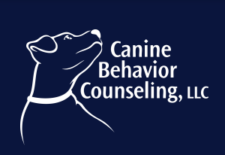in his or her life. This time varies from animal to animal depending on age and previous live experiences.
Dogs that are adopted from shelters and rescue groups are a perfect example of this, but keep in mind a puppy is use to playing for hours with his or her siblings. So do not be surprised if your puppy is grabbing your pants, socks, robe, anything that that they can mouth may become a new toy. For some, the transition may be minimal – meaning, he or she adapts immediately and welcomes his or her new environment. For others, it can take a bit longer – especially if there are other added stressors including different people or other animals.
Some people adopt a dog that has come from the field, a real working/hunting dog. Many of these dogs have never been in a home. I have found that their transition period can take many many months of adaption. Going at the dogs pace is key, forcing scary environments and people can make your training come to a complete halt or worse, complete avoidance.
I found with my own dog Sophie, there was a “honeymoon” period. she was lively and friendly with us, enjoyed playing and being with us. But greeting strangers was very scary for her. She took 6 months to warmup to the idea that guests coming into our home were a good thing. She learned to “recover” quicker and become more relaxed each month.
I would suggest for those adopting rescue animals, building trust while setting rules is most important. If you bring a dog into your home and give them tons of love and affection with no rules you are bound to have trouble, it is just a matter of time. So here are a few easy tips to set you and your new friend up for success!
Hand feed at least one meal a day for good behavior. Ask your dog to “come, sit, wait, lie down, go potty” you get it, reward with the dogs meal! Each time your new dog or puppy does an unwanted behavior, ask them to do something acceptable and reward, giving your dog a job is much more effective than just correcting behavior. Anytime your dog is being good, reward with affection, food or play, because it is a fact that consequence drives behavior. So, be consistent, think about what it is you just rewarded and repeat this process until you have it on cue.


